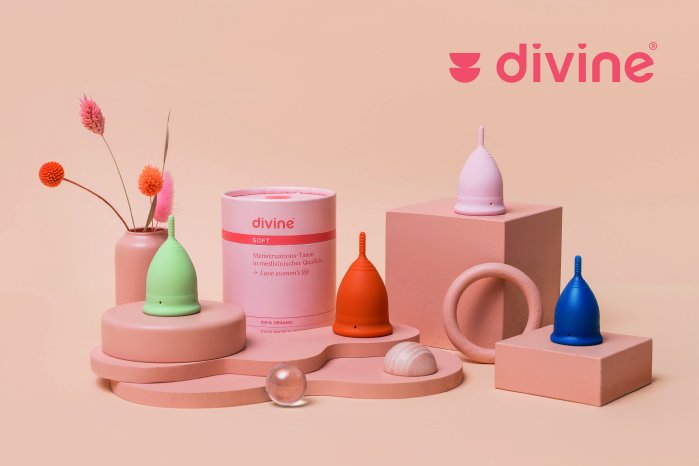According to a representative study by Hamburg-based market research institute Splendid Research, 96% of the women asked use disposable products, such as tampons, pantyliners and sanitary pads, for menstrual hygiene. However, all the familiarity and convenience of these disposable products aside, they do have considerable disadvantages when taking a closer look. The first point to note is the sustainability factor. Example calculations have shown that, in her lifetime, a woman will use around 16,000 tampons or sanitary pads, producing around 140 kilograms of rubbish. Even beyond the environmental issues, there are many arguments against using the most popular menstrual hygiene product, the tampon, for instance. The cost is the main factor, and it is bothering more and more women. According to a calculation by a US online newspaper, a woman will spend an average of 6,000 euros on disposable sanitary products in her lifetime. Even the recent VAT reduction in Germany for female sanitary products from 19% to 7%, as well as the lower tax rate in other European countries, will have little impact, particularly since initial observers report that manufacturers are increasing the prices in return.
These and numerous other reasons are causing more and more women to show an interest in alternatives. Invented back in the 1930s, the menstrual cup is gaining increasing momentum. Inserted into the vagina and held in place by the vaginal muscles and suction, the flexible, cup-shaped silicon bell collects menstrual blood when it is being worn.
It can be reused permanently, simply by removing, emptying and rinsing it.
"A menstruation cup by Divine Cup lasts for about 10 years," affirms Andreas Kiesewetter, co-founder of Divine Vertriebs GmbH, a Baden-Württemberg startup which responded to the growing interest in alternatives to tampons, etc. by creating the Divine Cup, a menstrual cup manufactured completely in Germany, "Despite a higher one-time purchase cost, this makes the Divine Cup a much better option than paying the permanent, regular costs of conventional sanitary products."
Menstrual cups can also be beneficial from a medical perspective. Exposure to questionable substances is avoided without users having to compromise on comfort, safety and hygiene. At the same time, the use of a menstruation cup helps the early detection of any gynaecological conditions. The compatibility of the Divine Cup has been proven in an application study by independent institute Dermatest, which certified its compatibility as the only menstrual cup on the 2020 European market with the verdict "very good". In 2020, Öko-Test also rated the Papperlacup as "very good". Produced in collaboration with einhorn, this product is identical to the Divine Cup and sold via retail chain dm.
The Divine Cup, made in Germany using medical-grade silicon, is available in four colours, each of which has three sizes and two hardness types. The more stable hard Divine Cup has proven especially popular, being preferred in particular by athletic women with stronger pelvic floor muscles. In its smallest size, offered exclusively across Germany, the Divine Cup is also suitable for teenagers.
"With its appealing design and colour range, we want the Divine Cup to ease any qualms in addition to showing the demonstrable benefits of menstrual cups and give them the same clout that tampons self-evidently have today in the sanitary product sector," explains Tobias Schüber, co-founder of Divine Vertriebs GmbH.


